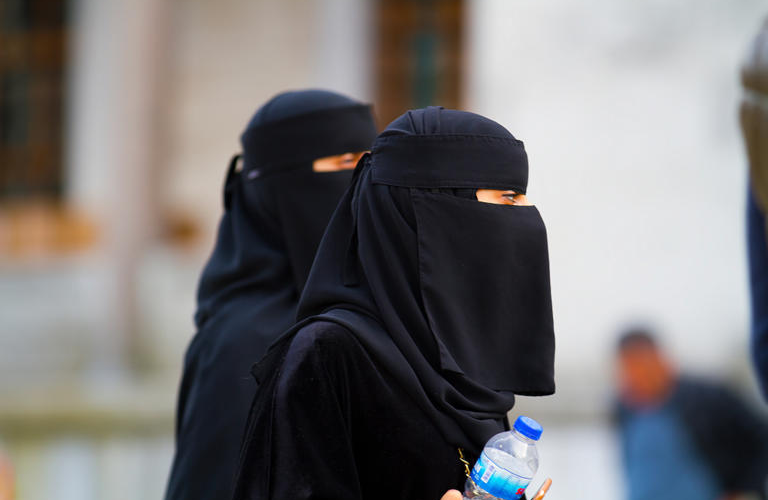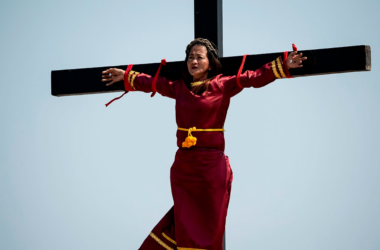In response to last month’s deadly terror attacks, religious authorities in Russia’s Dagestan region have announced a temporary ban on the niqab, a veil that covers the face except for the eyes. The decision, revealed on Wednesday, follows coordinated attacks on synagogues and Orthodox churches in Dagestan’s capital Makhachkala and the city of Derbent on June 23, which resulted in the deaths of 22 people and injuries to dozens more.
The muftiate, Dagestan’s religious administrative body, issued a statement on Telegram detailing the ban. The niqab will be forbidden “until the identified threats are eliminated” and the religious authorities reach “a new theological conclusion.” This move comes after reports suggested that one of the attackers had planned to use a niqab as a disguise to escape. Governor Sergei Melikov labeled the niqab a security risk in light of this incident.
Authorities had attributed the attacks to “international terrorist organizations” without specifying any particular group. The gunmen targeted Jewish and Orthodox Christian places of worship, exacerbating tensions and prompting swift action from local officials.
Dagestan, with a predominantly Muslim population, has a history marked by Islamic insurgency. The region has seen various security challenges over the years, often linked to extremist activities. The muftiate’s ban on the niqab is a precautionary measure in the wake of the recent attacks, reflecting ongoing concerns about religious extremism and the potential misuse of religious attire for criminal activities.
Prominent Russian figures have weighed in on the debate over the niqab. Alexander Bastrykin, head of Russia’s Investigative Committee, has advocated for a broader ban following the attacks in Dagestan. However, Chechnya’s leader, Ramzan Kadyrov, cautioned against such a measure, emphasizing the need to distinguish between religious practices and the actions of extremists. Kadyrov remarked that fanatics who misuse religious symbols do not represent true religious beliefs.
The attacks in Dagestan occurred shortly after a separate incident in March, where Tajik militants, reportedly aligned with the Islamic State, attacked a concert hall near Moscow, resulting in 145 casualties. These events have underscored the growing threat of Islamic extremism within Russia and have led to heightened security measures and scrutiny of religious practices.
Dagestan’s temporary niqab ban is a contentious yet targeted response aimed at addressing immediate security concerns while balancing the region’s religious dynamics. The decision reflects a complex interplay of cultural, religious, and security considerations as Dagestan navigates the aftermath of these violent incidents.








